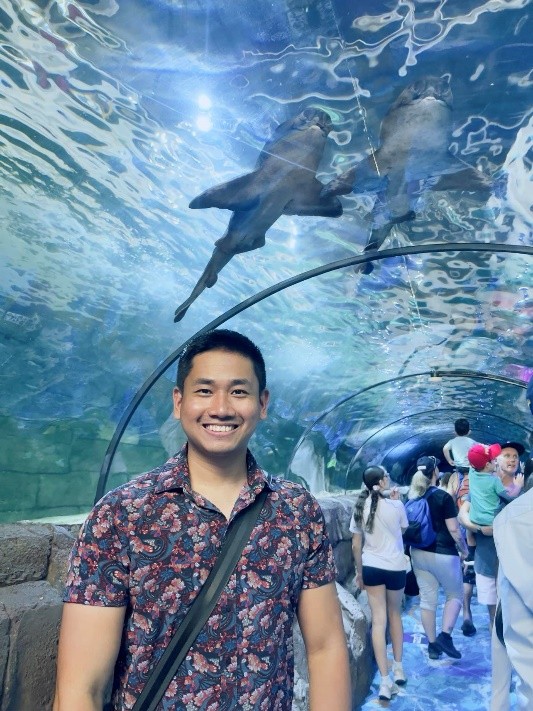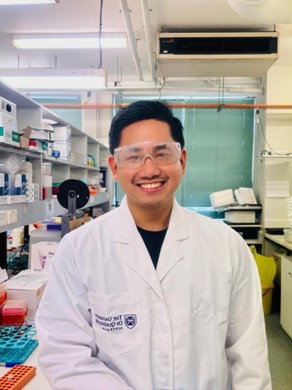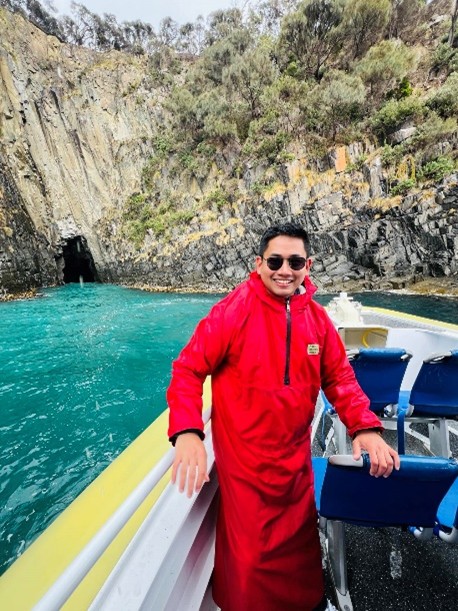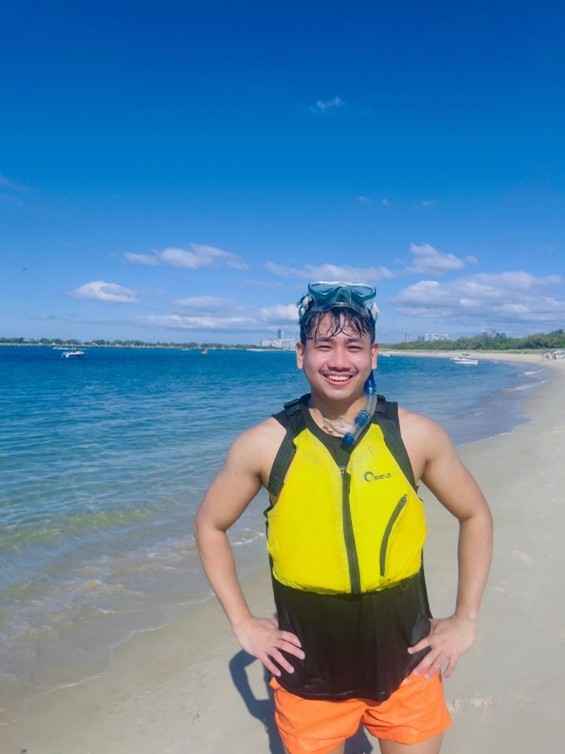My Australia Awards Story: Raising Awareness through International Educational Opportunities
What are your most memorable experiences living and studying in Australia?

Living in Australia gave me the opportunity to observe some of the country's most iconic wildlife, both in sanctuaries and in their natural habitats, and as a biologist, I was eagerly anticipating for these experiences. One of the highlights was with the nocturnal wombats at Bonorong Wildlife Sanctuary in Tasmania. These rescued marsupials are typically kept in care for rehabilitation. They may look cute and cuddly, but their armored bums can crush the skulls of predators that pursue them. We also had the privilege of seeing wild bottlenose dolphin pods off Bruny Island and watching humpback whales breaching in the Gold Coast Seaway. And, of course, no Australian experience would be complete without the territorial magpies and their aggressive swooping during breeding season. These experiences brought textbook knowledge to life, and in an ecological sense, they made me realise how it is possible for humans and wildlife to coexist.
What makes Australia a good place for postgraduate education?

Nurturing mentors and laboratory buddies! I think Australia is a great place for postgraduate education because of its supportive academic environment. From day one, we were already mentored by experts who are genuinely invested in our research and career plans. It was also surprising for me how these experts would openly admit when they didn’t have all the answers and would readily refer us to someone who’s more knowledgeable. Also, the collaborative atmosphere in labs, particularly working alongside PhD students, became a safe space for me to learn and make mistakes. It’s a big plus too that our mentors encourage us to take breaks when we need to, and ensures that we stay motivated without burning out. For me, it’s a place where both academic and personal development go together.
As a Filipino scholar, what are you most proud of?

More than the academic achievements, I think, I am most proud for becoming a platform for raising awareness of the agricultural challenges we face in our country. During my time at The University of Queensland, I’ve had the chance to inform others about challenges and issues like inadequate infrastructure, effects of climate change, and struggles of marginalised farmers. I take pride in the fact that sharing these concerns may trigger something in others, be it research ideas or policy initiatives. Who knows? I’m certain it will create a ripple effect to bring about the change we want and deserve.
Give one word to describe your Australia Awards journey.
I’d like to say “enlightening.” This journey made me understand myself better.
Now that you're back, how are you making a difference in your field/community?

I plan to start small, and that is to completely implement my re-entry action plan (REAP). Here, we focus on introducing an agricultural solution developed at The University of Queensland and, through this, I envision myself bridging the gap between recent innovations in crop research and practical and sustainable applications to local farming. There is so much that needs improvement in our local agriculture, and I am not even certain if I’ll get the chance to witness these changes in my lifetime, but I’ll be happy to at least lay the foundation to the transformation that I want.
Enrico Jugadora completed his Master of Biotechnology at The University of Queensland in 2024.



